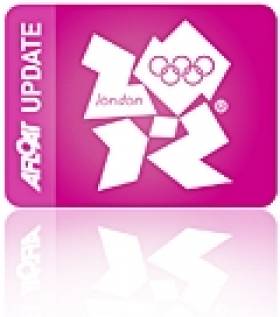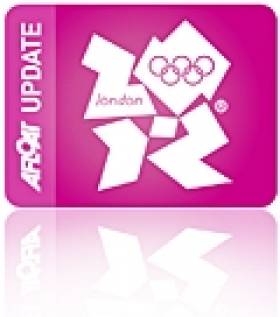Displaying items by tag: ainslie
Britain's Olympian Ben Ainslie Goes Extreme!
Ainslie recently competed in the Olympic test regatta in Weymouth and will return to his Olympic ambitions at the ISAF World Champions and Finn Gold Cup in Perth, Australia at the end of year. In the meantime, he has selected the opportunity to step from one hull to two in the Extreme 40 class, and step in to the cauldron of hot competition in the Extreme Sailing Series. Multihull sailing may have been around for a few decades, but the current trend puts the multihull platform firmly at the forefront of professional sailing whether it is the America's Cup, the new MOD70 circuit, round the world speed records (fully crewed or solo) or the Extreme Sailing Series – the ground-breaking circuit that has pioneered the Stadium sailing format since its creation in 2007 – and now a global circuit visiting three continents. "I'm looking forward to competing in the Extreme Sailing Series," said Ainslie. "I've had the chance to watch some of the previous events, the sailing is very close and a great spectacle. This will be my first competitive experience of the circuit and it's an exciting prospect."
But Ainslie will feel the pressure of stepping into a new multihull class: "There is definitely a bit of pressure stepping on the boat at this stage in the Series, and I think it is going to be a lot about me not letting the guys down as they have been doing a great job so far this year," said Ainslie. "We have just a couple of days training in Trapani before our first event together, so it is going to be tough going in cold, but hopefully I can pick it up quickly and we can get some good results."
Ben Ainslie will be replacing French skipper Sidney Gavignet following his move to Oman Sail's new Multi One Design 70 campaign. The 'Oman Air' Extreme 40 team lie 8th out of 11 in the overall 2011 Extreme Sailing Series rankings and Ainslie will be racing with the regular crew of bowman Nasser Al Mashari, tactician Kinley Fowler and trimmer David (Freddie) Carr.
Double Olympic gold medalist and skipper of Red Bull Extreme Sailing, Roman Hagara, commented: "I'd like to welcome Ben Ainslie to the circuit. We both have a big Olympic background and know how to sail under pressure. This is the right place for him to show his skills on big multihulls. For sure we will have some great racing going on against each other in the coming events."
Paul-Campbell James, winning skipper on The Wave, Muscat in the 2010 Extreme Sailing Series, now skipper of the Italian entry Luna Rossa is looking forward to the next Act in Trapani (Sicily) where the Italian team can expect some good 'home' support, commented: "It's great to have Ben in the fleet and in the winning boat from 2009. I've never raced him before and am fascinated to see how he gets on."
Act 7 of the 2011 Extreme Sailing Series will be staged in Trapani on the island of Sicily starting on the 14th September with Stadium racing staged over the 16th-18th September.
Britain's Ben Ainslie Sitting Pretty in Weymouth (Video here)
Three time Olympic champion Ben Ainslie insists he is slowly building up a picture of what London 2012 will be like after another dominating day at the Weymouth and Portland International Regatta writes Ben Baker in Weymouth.
The 34-year-old has been in top form on England's south coast during the London 2012 test event, and showed no signs of slowing down on Wednesday with finishes of first and second.
This means he is sitting pretty at the top of the Finn class, seven points clear of nearest challenger Pieter Jan Postma from Holland, with just two more races to go before Saturday's medal race.
But Ainslie is adamant it is just as important that he gets a feel for the London 2012 venue ahead of what he hopes is a fourth visit to the top step of the Olympic podium.
"Wednesday was another good day, another windy day with tough with strong winds so very tough physically but the results were great," he said.
"It was very challenging as well because we raved the first race on one course and then switched to another for the second and the results were very pleasing on both which was great.
"We sailed on two courses which we haven't sailed on this season and I can there is a lot to take away for London 2012.
"We have another two fleet races and then medal race after that and I am still feeling good and confident of finishing on a high.
"I am happy in terms of my performances, I had one sticky day but managed to come back and have sailed really well since but I need to make sure I have a good end to the regatta to finish the job off."
Investment specialist Skandia is the principal sponsor of the British sailing team. For more information go to www.skandiateamgbr.com






























































